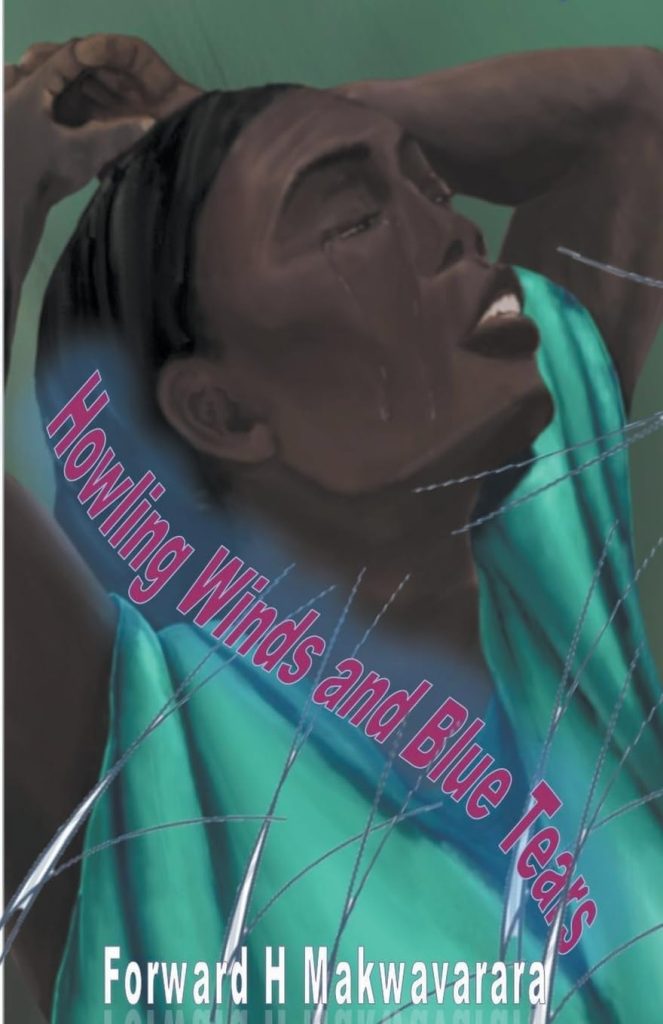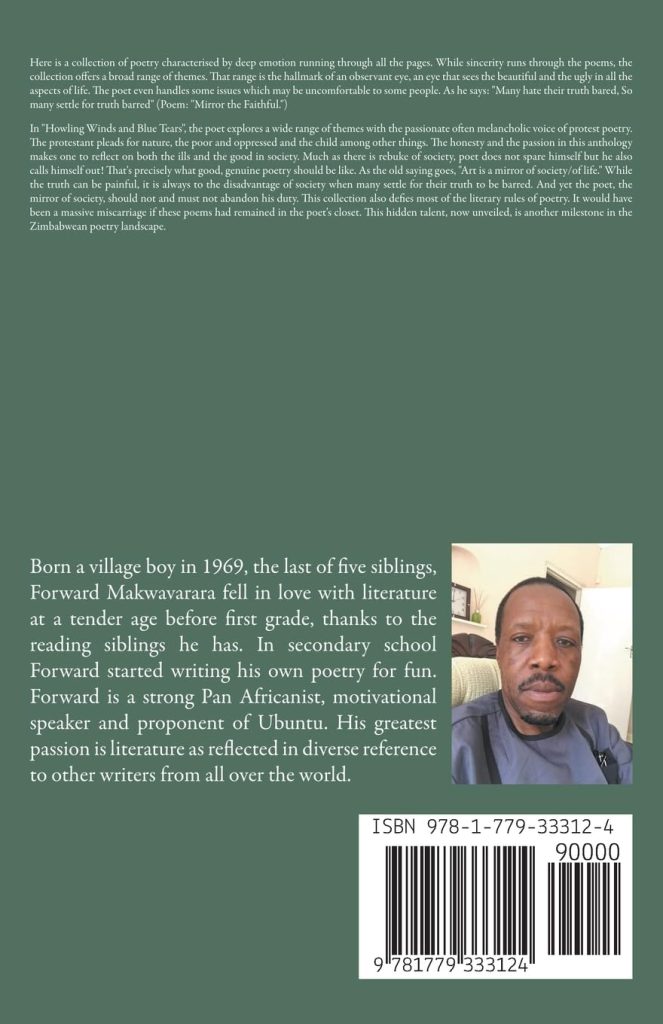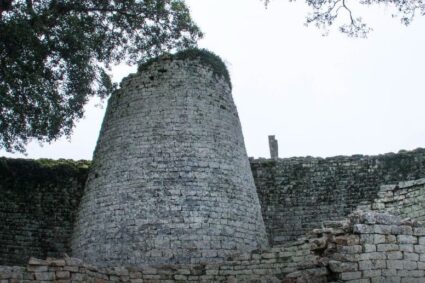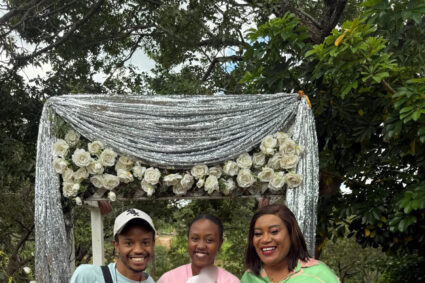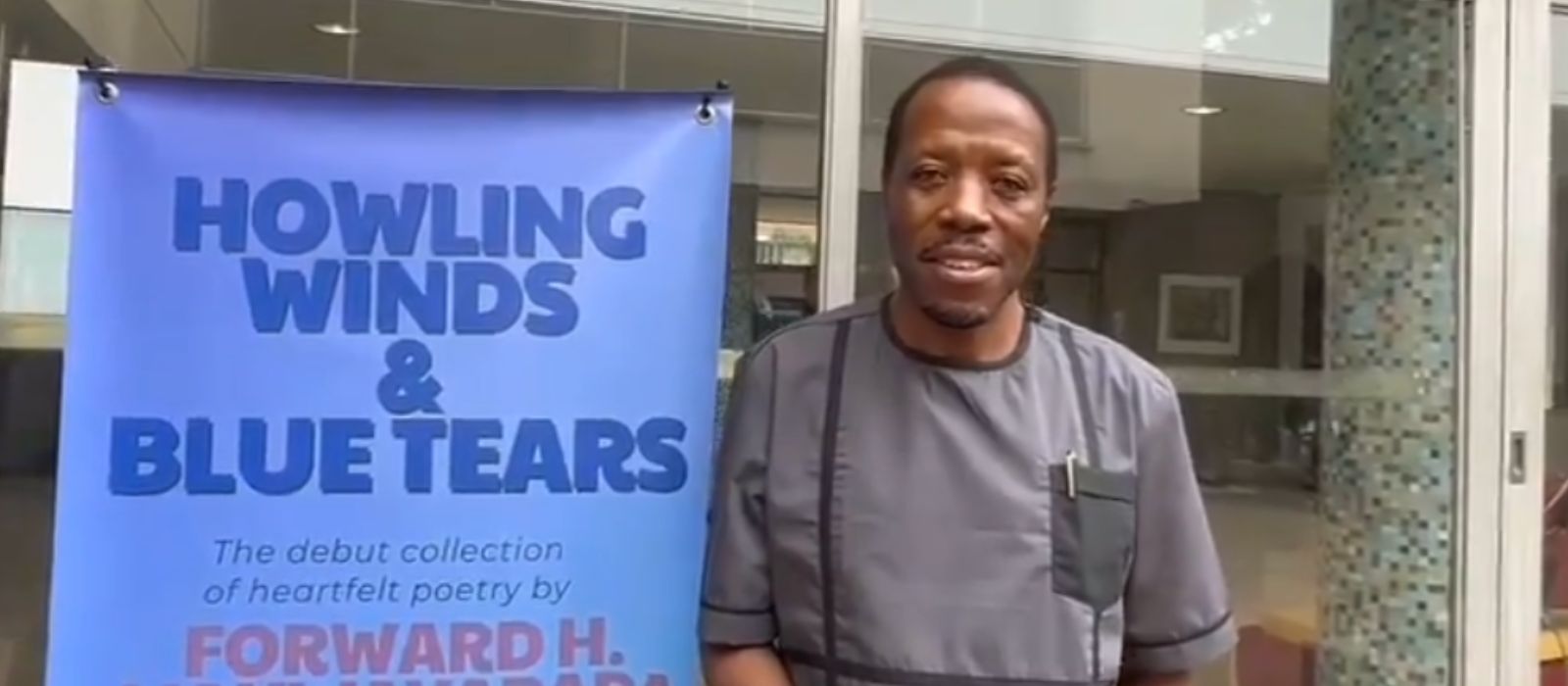
Howling Winds and Blue Tears, published on 17 December 2023 was described by the founder of the Lit.Fest Harare, Mr Chirikure Chirikure as, “precisely what good, genuine poetry should be like.”
“Reading through this collection, one feels a characteristic tone and emotion running through all the pages. The poet pours out his inner feelings in such a way that one cannot doubt that he is closed in his own world, diving deep down with no concern of the opinions of the outside world. While this can partly explain the reluctance to publish his works, this also gives the poetry some crucial, positive element: sincerity.” ~ Chirikure Chirikure
From poems like, Today a prayer and song, filled with encouraging words to a beloved child from a parent to, the Grass is fighting, a piece which describes the political situation in most African countries. Infused with some profound quotes like The greatest prayer for success is called planning, and the greatest answered prayer for success is called work, History is written by victors and weakness of humility is strength of control.
We got the opportunity to talk to the author, who started his writing journey at Makumbi mission in Chinamhora, Mr Forward Makwavarara (FM). *Chiedza Mukucha (CM)
CM: Can you tell me how you came up with the title of your poetry book?
FM: If you consider that the themes covered in the book are diverse, and they carry a general protest dimension. Those are the howling winds. Nature is crying, children, the poor, the oppressed. Blue tears of sadness are everywhere. That inspired the title.
CM: When did you start writing and did you ever attend creative writing classes?
FM: I started writing for fun in 1984 in secondary school. I never had any writing classes.
CM: Is this your first book?
FM: Yes, it is, but by no means the last.
CM: Most creatives find it hard to pick a favourite from their work, which is your fav poem in the book and why?
FM: That is like asking me which one is my favourite tooth… each one is an expression of a specific emotional experience. Perhaps i could still nominate Thinking Thanking Mother, Lies, No balls and The Grass is Fighting.
CM: How have people received the book?
FM: I should be the first to admit that many people are not aware of it. One of the challenges of self publication is in creating a large public awareness. A lot of publicity is still needed.
CM: What drives you to write?
FM: Emotions: anger, pain, loneliness, happiness, reflection on my past and present interactions with the human and natural environment. A bit of fantasy too.
CM: Do you ever have writer’s block, if so, how do you go about it?
FM: Most definitely. I guess it is the one thing that delayed publication of this first anthology even after deciding I wanted it out. I have since discovered that setting writing targets and being accountable to someone really helps. Having your own support group who are aware of what you are writing about also helps energise you. It is equally important to have some writing space for quiet concentration. This space can be created at night when others are sleeping.
CM: As a writer do you use social media, how do you use it for your benefit
FM: I use social media quite a lot. Sometimes to share my thoughts, discuss issues, and publicise my book.
CM: Was it hard finding a publisher?
FM: It was a nightmare finding a publisher. Most publishers want you to pay a significant fee for their services upfront. The others have long processes and still reject your work. I found self publication as an easier way out.
CM: How long did it take you to compile all the poems?
FM: This anthology is made up of a few poems before covid 19. Most of the poems were written between 2021 and 2023.
CM: Who is your favourite Zimbabwean poet, writer and African writer?
FM: Poets if you please: Chirikure Chirikure and Abel Mauchi. Writers: Tsitsi Dangarembwa and Dambudzo Marechera. In Africa, Ngugi waThiongo.
CM: Which books did you grow up reading?
FM: I read widely. Hardy Boys series were my early secondary school favourites. I graduated to Stephen King, Wilbur Smith and John Grisham. O level and A level literature impacted my reading heavily gravitating towards African writers. I still read widely though.
CM: Between ebooks and audio books, which one do you prefer?
FM: Well, I have read a few ebooks. I would still keep my hardcopy. Audio books often leave out the tone inflections that I unconsciously create in my mind when I read. However, audio books are easier to handle with your eyes closed. That said, I would go with ebooks which allow me to actively imagine staff especially for the conversational type of book.
CM: How do you handle negative reviews on your book.
FM: I have not really received much in negative reviews and that worries me so much. The very few hard comments (not really negative reviews) I have received, have been an opportunity to reflect on my writing style with the realisation that there are traditional expectations for what is good poetry. I have in a number of my poems rebelled or protested against such standards. Why should writing traditions prescribe how one speaks their heart?
